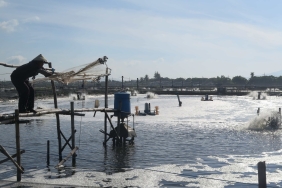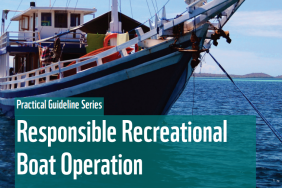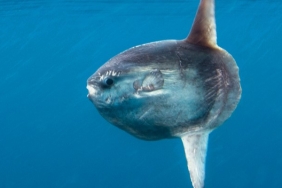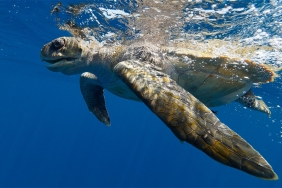HSBC AND WWF-INDONESIA SUPPORT SEAWEED FARMING BUSINESSES THROUGH POND SCHOOL TRAINING
PT Bank HSBC Indonesia and WWF Indonesia Foundation are working together to encourage sustainable sourcing in the seaweed industry in Indonesia. This form of support from organizations and corporate partners was manifested in a training to improve the economy and implementation of responsible and sustainable seaweed farming in Sekolah Tambak on November 5, 2020.
This training is important considering that seaweed farming has an impact on the surrounding nature. In practice, seaweed farming has led to the conversion of critical habitats, the use of environmentally unfriendly materials, and exploitation without regard to the guarantee of seaweed stocks in nature. In fact, CSG already has a work plan to meet the Aquaculture Stewardship Council (ASC) and Marine Stewardship Council (MSC) standards for environmentally sustainable and socially responsible seaweed production. However, during the 10-month span of the Aquaculture Improvement Program (AIP) ASC-MSC Seaweed CSG Bone, faced obstacles. Starting from low market demand, to the disastrous impact of the Covid-19 outbreak that caused sluggish purchasing. The event began with a discussion of the economic conditions of seaweed farming business actors guided by Idham Malik, as Aquaculture Specialist of WWF Indonesia Foundation. They talked about the income from their farms that could not fulfill their daily needs. Based on this information, the training participants looked for ways to increase their income. Starting from increasing the production and quality of seaweed itself, to polyculture of seaweed with tilapia and tiger shrimp. The discussion continued with an explanation of the ASC-MSC standard. Seaweed farmers are now beginning to understand the benefits of the ASC-MSC Seaweed standard, which can minimize environmental impacts and improve relationships with surrounding communities. Some of the key implications of implementing the standard include mangrove rehabilitation, farming operational standards, monthly discussions within the framework of Farm School, and community strengthening in the form of institutions run by local communities. On this occasion, Wahyudin Hasan, a tilapia farming practitioner from Makassar, was also present to give an introduction to fish farming. Wahyudin conveyed techniques and tips for polyculture of tilapia and seaweed, as well as an overview of the income that will be obtained from both businesses. After the Latonro Village Pond School, the farmers were more eager to practice seaweed farming with tilapia. They realized that there are other alternative ways to boost their income. Through the Pond School, the community now has a broader knowledge, can hope to improve the economy, and remain consistent to do better seaweed cultivation.





